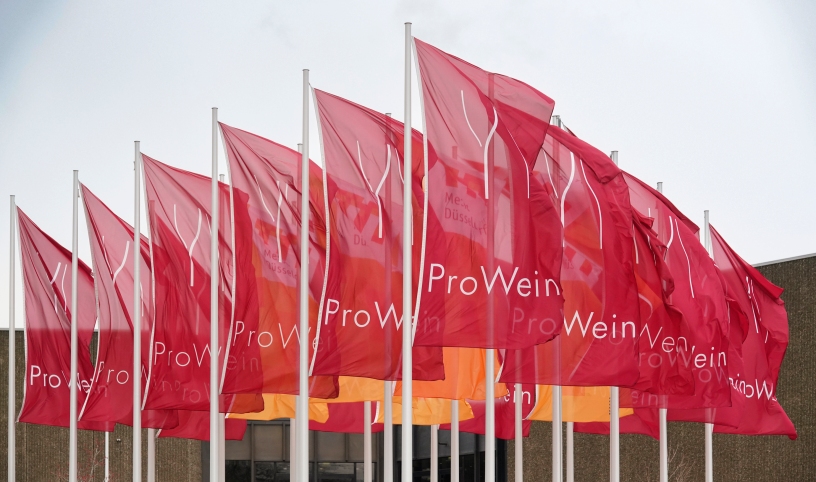Celebrating its 30th edition, the largest wine and spirits trade show continues to captivate its professional attendees, consistently staying ahead of the curve. This year’s edition, to be held on March 10-12, boldly introduces a revolution in wine-making traditions: the integration of AI and Robots in viticulture.
ProWein, the world’s largest wine and spirits trade show held annually in Düsseldorf, is at the forefront of showcasing groundbreaking developments. With around 5,700 exhibitors from approximately 60 countries, the event this year promises an exciting display of next-generation “helpers”, and is set to dazzle attendees with a thrilling showcase of state-of-the-art advancements in the world of wine-making.
ProWein 2024: A Glimpse into the Future

Technological innovations are reshaping the age-old world of wine-making and vineyards management. While the romantic image of small farmers tending to vines still holds its charm, the practical challenges, such as securing skilled labor, navigating difficult terrains, and dealing with global warming effects with increasingly hot summers, have prompted a turn towards cutting-edge solutions. Artificial intelligence (AI) and robotics are emerging as promising, albeit technical, answers to these challenges, steering viticulture towards unexpected ecological directions.
Global Innovations in Vineyard Robotics – Meet Some of Our New Helpers
In the array of robotics projects scheduled to be showcased at ProWein 2024, Spain stands out with its VineScout, released in 2016. This autonomous robot is designed for vineyard mapping and monitoring, enabling increasingly timely and effective management. Meanwhile, researchers at Cornell University, in the US, have devised PhytoPatholoBots to assist in developing disease-resistant grape varieties.
The French Naïo Technologies introduced Ted in 2017, a lightweight, fully autonomous, electric straddle robot. Ted’s precise mechanical weeding eliminates the need for toxic herbicides, providing an eco-friendly solution to labor-intensive tasks. Equipped with GPS for precise positioning, the robot can cover up to 5 hectares per day, even in the most challenging location setting new standards for sustainability in viticulture!
In 2019, the Bakus robot, from startup VitiBot in Reims, marked a significant step forward. This fully electric-powered, autonomous straddle robot can navigate also narrow vine rows effortlessly, and with no concern to summer heat, handling tasks from weeding to pruning and leaf removal. No wonder it was designed by Cédric Bache, an engineer with a family tradition in wine-making.
Robots like these represent just a glimpse of the advancements emerging worldwide. Such innovations open doors to larger-scale organic and bio-dynamic farming.

Embracing the Future With New Tools
Despite the rapid progress in AI and robotics, winemakers emphasize that these technologies are tools rather than replacements, as it ought to be. The goal is not fully automated vineyards, especially in organic practices. By leveraging robotic speed and fast data-delivery systems, winemakers aim to enhance decision-making processes while preserving the aesthetic and intuitive aspects that will always keep wine-making an art. Here’s to toasting the harmony of tradition and innovation in viticulture.

Digitized Taste – Would You Trust it?
Moving from the vineyard to the tasting room, advancements in AI continue to transform the realm of the copywriter and critic. While AI can sometimes mimic writing styles and synthesize characteristics, it has yet to replicate the sensory experiences of smell and taste. Initiatives like PINOT, however, aim to bridge this gap, using AI-supported analysis of wine aroma to digitize sensory perception. The question is: do we really need this? And would you really trust it? We can’t say yet but will follow through with it. Let us enjoy ProWein 2024 armed with a glass and a fair share of curiosity now, the good old-fashioned way.
© Riproduzione riservata
Enjoyed this article? Share it and subscribe to this Blog to support us. Join the other 1,553 followers and receive more content like this in your mailbox. Thank you!
Your personal data will never be shared with anyone and will only be used fo this purpose.

